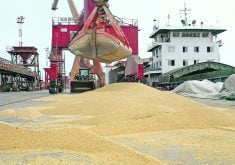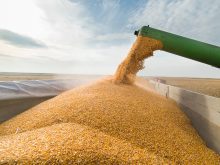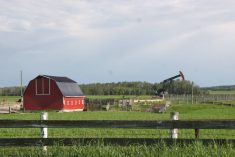Manitoba farmers want help making their farms safer.
They don’t want safety police raiding their farms and issuing them tickets.
That is the message Keystone Agricultural Producers is sending to the provincial government, which wants to toughen farm safety compliance to cut the annual farm death toll.
“We’re well aware of the high levels of fatalities that occur on the farm. However we felt that continuing the current education and safety promotional campaigns are the way to do it,” said Chuck Fossay, KAP vice-president.
Read Also

Trump’s tariffs take their toll on U.S. producers
U.S. farmers say Trump’s tariffs have been devastating for growers in that country.
KAP president Don Dewar said the provincial government has already decided to hire a workplace safety officer who will be dedicated to farms.
KAP is trying to make sure the officer is there to help farmers who request assistance, rather than attempting to catch farmers who have safety problems on their farms.
“We believe that the role of a farm safety officer should be one of awareness and education,” says the KAP position paper given to the government.
“A farm safety officer could fill the gap of resource person-co-ordinator when a farm operator asks for assistance in implementing a farm safety plan.”
Fossay said farmers would like to improve their safety standards, because their lives are at stake. But they can only afford to do so much, especially now.
“It’s very difficult in these financial times to implement some of these regulations that they might be putting on,” said Fossay.
The Manitoba government’s labour department is holding hearings across the province about improving workplace safety. The department wants to reduce total workplace injuries by 15 percent over four years.
It hopes to come up with a strategy that will focus on preventive education, better enforcement of safety regulations and targeting people especially vulnerable to workplace accidents such as young workers and people on farms.
KAP supports increasing workplace safety education in schools and making more available to people who request it.
And it says that offering rural child care would be more effective than trying to catch farmers committing infractions. Many farm wives have to work off the farm, leaving husbands to “watch the children while doing the daily chores.”
KAP’s position paper also says older farmers are vulnerable to accidents because “many producers do not want to believe that they can’t do the same chores at 65 that they could at 40.”
The government could help farmers by providing a self-assessment program that would reveal possible safety problems on the farm.
Dewar said KAP complained it did not have enough time to discuss this issue with the workplace safety committee, and plans to spend more time providing the farmer’s perspective.
He also challenged farmers to show they are serious about farm safety, so the government will trust them.
“What are you prepared to do voluntarily?” asked Dewar.
“What would you be willing to raise your hand and say (you’ll) do on your farm so that they don’t come (and make orders about what you will do)?”















